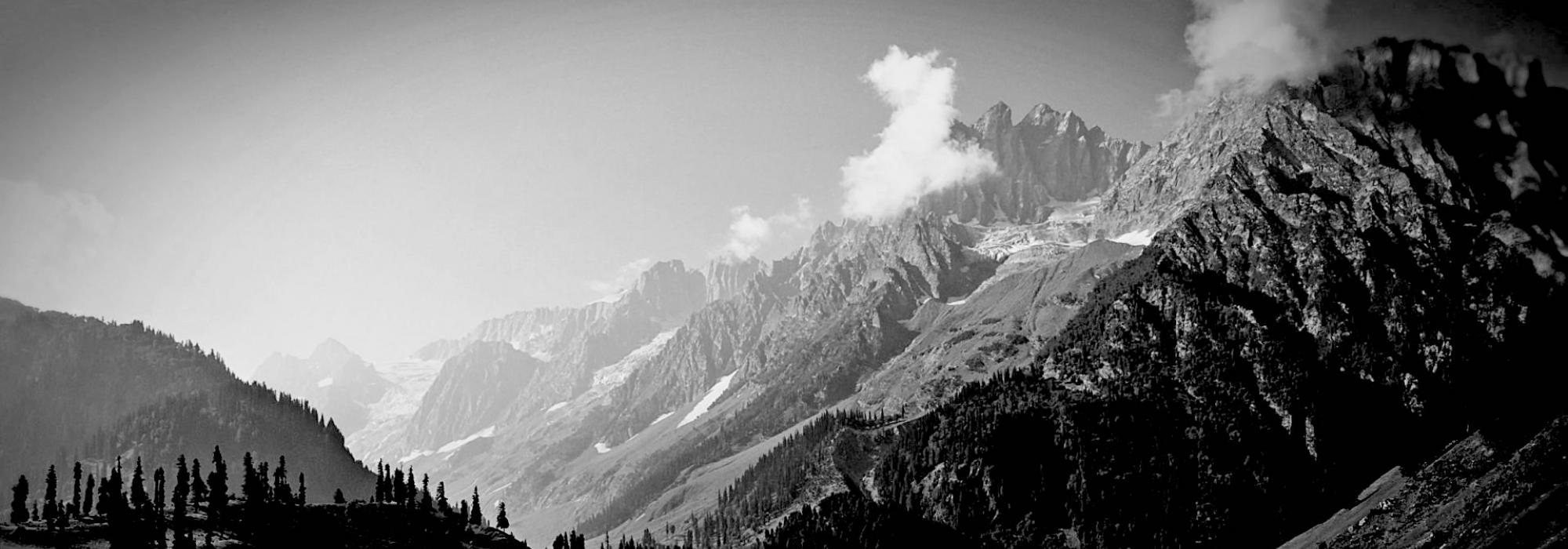Since saṃsāris are thus different from saṃnyāsis, the interest and regard of saṃsāris towards karma is different from that of saṃnyāsis. However,the meaning that we derive from the above śloka from the point of view of saṃsāra is not conflicting with or incongruous with that derived from the point of view of saṃnyāsa. This new path will set a context for people in the present age and time.
Let us see the individual words of the above verse, one by one.
- Adhiṣṭhānam : Our ancients have called this the body. However, there is not much appeal in interpreting it as body, because in the next verse, the phrase “śarīra-vaṅ-manobhih” is explicitly called out. There is no necessity here for reiteration. Therefore, it is more proper to interpret “adhiṣṭhānam” as situations that influence a person to act in a certain way - circumstance or situation. A man’s karma is influenced by the circumstance. “Adhiṣṭhānam” is a collective name for situations that become the basis for performing a karma, the circumstances due to which karma is performed.
- Kartā : The ancients and us do not differ in the interpretation of this word. Kartā is one who does, the man who performs the karma.He consumes the fruit of good or bad deeds that he performs. When we say kartā, we should remember that it is the sum total of the qualities of the jīva, the remnants of puṇya and pāpa from his past lives, associations due to past obligations, the impressions on the manas because of them, the combinations of the three guṇas and so on. Kartā is not the pure ātmā, but a jīva that is shackled by the impressions of karma. Hence the responsibility of consuming their good or bad result. The pure ātmā neither performs karma nor consumes its fruit.The jīva along with collected past impressions and obligations is “kartā”.
- karaṇaṃ ca pṛthag-vidhaṃ : Different means used to perform karmas. Earlier commentators have interpreted “karaṇa” as indriyas. However, as we saw above, indriyas are alluded to in “śarīra-vāṅ-manobhiḥ” . Therefore, there is the possibility of a different interpretation here. The people and instruments that assist in performing an activity are collectively called upakaraṇa. They are the wealth that aid in performing karma.
- vividhāśca pṛthak-ceṣṭāḥ : Earlier commentators interpret this as the changes that air causes in our body — such as inhalation,exhalation,yawning, sneezing, etc. It makes more sense to interpret this differently — as it seems difficult for us to believe that the results of a karma are dependent on yawns and dozing. The effects of the five prāṇas are seen in one of the next words, “sarīravāk”. It is proper to interpret ceṣtā as the manner in which a task is carried out. It is apt to understand it as a plan of action, programme, policy, strategy, tactic etc. It is like the skill displayed by a pawn in a game of chess. “vividhāśca pṛthak-ceṣṭāḥ” therefore means the four strategies — sāma, dāna, bheda, daṇḍa, and many other means of performing a task, the manner in which it is performed.
- Daivam : Earlier commentators have construed this as the ruling deities of sense-organs — such as the Sun and the Moon, or the energy that is internally present in the jīva. It is not possible to demonstrate any special property of karma by just this much. There is no doubt that divine powers such as the Sun and the Moon and the internal energy exist. It is also well-known that they are also party to the performance of a karma. By saying “the body, speech and mind”, we do not mean a dead body, but a living and thriving one. When there is a jīva, there are senses and the deities ruling those senses and the ātmā that is present inside it. There is another thing that has to be explained apart from these. That is Fate. That itself is daiva.
The Yoga-vāsiṣṭha says :
prāktanaṃ pauruṣaṃ tad-vai daiva-śabdena kathyate ॥
Yoga-vāsiṣṭha 6.35
Daiva is that which has the power to allocate good or bad outcomes to people who take part in a karma and who have to consume its result, according to what they have earned in the past. That is fate. That is the controlling agent of the universe. In the eleventh chapter, Bhagavān said -
mayaivete nihatāḥ pūrvameva ॥
BG 11.33
Daiva is that supreme authority who had already decided the outcome of the war that was yet to be fought and said “If you do not fight, the battle will not stop; do not think that if you exit the war, those who are supposed to be killed by you will remain alive; they have all been slayed already”. Daiva is that omnipotent entity that has been praised by the Vedas as
yāthātathyato’rthān vyadadhāt śāśvatībhyaḥ samābhyaḥ |
Īśāvāsya Upaniṣad, 8
“he allotted different tasks to the years”.
And,
dhātā yathāpūrvam-akalpayat ॥
Ṛgveda, 10.190.3
“In the beginning, Dhātṛ created”.
We call it adṛṣṭa, vidhi, prācina, prāpti, niyati, yoga, fate, past karma, etc. Daiva is the controlling force, the ruling authority of the universe. In other words, it is destiny, providence. That is daiva.
Though there are different interpretations of the word “Daiva”, they all converge towards the meaning “Fate”. The performance of karma and the blessing of the divine are both two forms of fate. Both are not directly perceptible. The following verse from the Ādiparva of the Mahābhārata should be recalled here:
daive puruṣakāre ca loko’yaṃ saṃpratiṣṭhitaḥ ।
ṭatra daivaṃ tu vidhinā kālayuktena labhyate ॥Mahābhārata Ādiparva 122.21
The time taken to obtain results from our past karmas or divine blessings cannot be gauged by us. Their fruition might happen at some time. It is not meant to be understood by us. It works independently according to its timetable.
Let us apply the above five principles to an example. In the Kurukṣetra war,
- Adhiṣṭhāna: The dispute between Pāṇḍavas and the Kauravas about dharma. The just claim of the Pāṇḍavas for the kingdom, and the enmity of the Kauravas that didn’t allow them to part with it. This situation of dharmic conflict is the adhiṣṭhāna for the war.
- Kartā : Dharmarāya
- Karaṇa : Bhīma and Arjuna, Drupada and other warriors who helped them, Kaurava warriors such as Bhīṣma and Drona are all numerous karaṇas.
- Ceṣṭa, upāya : Yudhiṣṭhira requesting Bhīṣma’s blessings, letting Drona know of Aśvatthāma’s slaying, different vyūhas of the armies, the deliverance of various śastras (weapons without mantras) and astras (weapons with mantras), Arjuna acquiring weapons like Pāśupata — all such deeds are “pṛthak-ceṣṭah”.
- Daiva : Śrīkṛṣṇa’s attempts at bringing peace, Mahādeva bestowing the pāśupata weapon on Arjuna and appearing as Bhairavarudra on the battlefield — this is daiva. Both Śrīkṛṣṇa and Mahādeva are not concerned with the results of the war. They only came for the sake of protecting dharma. They came only with the noble objective to establish dharma in the world. The work of daiva is in accordance with that of dharma.
What is the meaning of the above? It means that all thoughts and plans of man are subject to the rule of a superhuman rubric; it means that the human work is under the authority of the superhuman.
Let us apply the theory of five organs of karma to a wedding. A girl being of marriageable age and the father being prepared to perform the ritual of a marriage — these are the adhiṣṭhāna. The father is the kartā. The bridegroom is the karaṇa. The marriage brokers and mutual friends and relatives are the other karaṇas. The various acts of service and civility — such as perfume, feasts, the honorarium given to the bridegroom are the ceṣṭās. Then comes the daiva. It is daiva’s blessing if the wedding happens without the bride or the bridegroom falling sick at the time of the lagna or no obstacles in the form of bad news are encountered.
Let us look at a meal from the same perspective. The hunger of the stomach and the desire of the palate are the adhiṣṭhānas. Kartā is the hungry man. Cooks and vessels are the karaṇas. Struggling in shops to buy the items on credit and exhorting the workers and cooks are upāya-ceṣṭās. It is the blessing of daiva to be able to finish the meal without stomach ache, or without hearing appetite-killing bad news or to be harangued by time-eating visitors.
There are more examples of the wrath of daiva than its blessings in the experience of people.
To be continued...
The present series is a modern English translation of DVG’s Kendra Sahitya Akademi Award-winning work, Bhagavad-gītā-tātparya or Jīvana-dharma-yoga. The translators wish to express their thanks to Śatāvadhāni R Ganesh for his valuable feedback and to Hari Ravikumar for his astute edits.











































